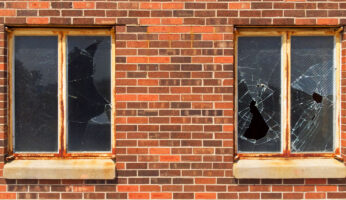Table of Contents
- Do I need renters insurance if my landlord doesn’t require it?
- Do I need renters insurance if I live with someone else, like my parents?
- Do I need renters insurance if I don’t own very much?
- Do I need renters insurance if I live in a short-term rental?
- Do I need specific renters insurance based on my type of housing?
Do I need renters insurance if my landlord doesn’t require it?
Yes, you need renters insurance even if your landlord doesn’t require it. Although owning renters insurance isn’t legally mandatory, you need it to protect yourself from financial hardship.
Why you need it
Many renters believe that if there’s a disaster in their apartment (like a kitchen fire), their landlord’s insurance policy will reimburse them for their destroyed possessions.
However, that’s not the case; your landlord’s insurance only covers things that they own, like permanently installed appliances and the building itself. Your landlord has no obligation to pay for your possessions, which means you need your own renters insurance policy to cover them.
Do I need renters insurance if I live with someone else, like my parents?
You might still need renters insurance if you live with someone else, depending on whether they own their home or you’re renting an apartment together.
If you live with somebody who owns their home
If you live with somebody who owns their home, like your parents, you might not need to get renters insurance. (This is one of the only times you’ll hear us say that.)
Your parents probably already have homeowners insurance, which covers the property of “permanent dwellers” — i.e. anyone who lives in the house full-time. That means you’re covered under their policy as long as you live there, and you don’t need to buy your own.
However, you should double-check your parents’ insurance policy to make sure everything you want to insure is covered. If you have any particularly expensive possessions (like jewelry or electronics), their policy might have a sub-limit, or a cap on how much your insurer will pay for that type of item.
If you need more coverage than your parents’ plan offers, you should think about buying your own renters insurance policy, which you can do even if you aren’t actually paying rent to them.
If you’re renting together
If you rent an apartment with somebody, like your significant other or a roommate, you need to get renters insurance. You have two options:
- Share a policy with your roommate
- Buy a renters insurance plan of your own
Sharing renters insurance with your roommate
If your roommate has renters insurance, their policy won’t cover you by default, but they can add you to it. However, sharing a policy has significant downsides.
When you share a policy with someone, any claims they file will have negative consequences for you (i.e. your premiums will go up) and vice versa.
You’ll also both receive the same amount of coverage, regardless of how much you own. If there are disparities — for example, if your roommate has a lot of expensive electronics that they need to insure — you might end up paying higher premiums for insurance that you don’t actually need.
Buying your own renters insurance policy
It’s usually better to get your own renters insurance, because it gives you more control over the policy’s terms. For example, if you are a college student who wants to buy renters insurance and live with a roommate, you should consider purchasing a separate policy.
You can decide for yourself how much renters insurance coverage you need. You can also decide what type of policy you want (i.e. replacement cost or actual cash value) and add endorsements or floaters if you need them. You can also easily transfer your renters insurance policy to a new address if you decide to move out.
Do I need renters insurance if I don’t own very much?
Yes, you still need renters insurance even if you don’t own very much, for two reasons:
1. You probably own more than you realize
There’s a good chance you’re undervaluing your property. If you asked most people how much their possessions were worth, they’d probably guess a few thousand dollars — but as it turns out, the average renter owns around $30,000 in personal property.
Unless you’re a true minimalist, replacing everything you own out of pocket would probably set you back quite a bit. That isn’t a situation you want to find yourself in.
2. No matter what, you need liability coverage
Many people gloss over the importance of liability coverage. Sometimes even insurers gloss over it in their ads. However, it’s just as important as personal property coverage.
Attorney fees can be incredibly steep. If somebody sues you, either because they got hurt in your home or you accidentally damaged their things, the legal dispute could cost you tens or hundreds of thousands of dollars — even if you ultimately win.
If the odds of one of your friends suing you feels remote, remember that you probably invite people other than friends into your home, like repairmen. Sometimes even landlords sue their tenants.
All of this means that even if you don’t own very much, you should still get renters insurance for the liability coverage. If you prefer, you can opt for a low amount of personal property coverage (i.e. under $15,000) to lower your premiums and focus your plan on the type of coverage you actually want.
Do I need renters insurance if I live in a short-term rental?
Yes, if you live in a short-term rental, you should still have renters insurance.
What exactly is a short-term rental?
A short-term rental is a house or apartment that you rent on a monthly basis with the expectation that you won’t live there for very long (i.e. less than a year, and sometimes under six months).
Landlords often rent these units out to digital nomads or people who are staying in a city for a few months on a business assignment.
How does renters insurance work if I live in a short-term rental?
Renters insurance doesn’t treat short-term rentals any differently than regular apartments. If you live in a short-term rental unit, a standard renters insurance policy will still fully cover you.
It doesn’t matter whether you already had the policy when you moved in or bought it while living there. If you get renters insurance when you’re living in a short-term rental, your policy will continue to cover you when you move out. (For more on this, check out our article, “Does renters insurance cover moving?“)
Do I need renters insurance if I have travel insurance?
Yes, you need renters insurance even if you already have travel insurance, whether you’re staying in a short-term rental or a hotel.
Travel insurance covers trip cancellations, medical emergencies that occur while traveling, and stolen luggage. However, it doesn’t cover your property (with the exception of your luggage) or provide any form of personal liability coverage at all — both of which are covered by renters insurance.
Short-term renters insurance doesn’t really exist if you’re staying somewhere temporarily, but one of the major perks about having renters insurance is that it protects you even when you travel.
Do I need specific renters insurance based on my type of housing?
No, you don’t need a specific type of renters insurance based on the kind of building you live in. A standard renters insurance policy will fully cover you regardless of whether you live in a:
- House
- Apartment
- Condo
- Flat
- Townhouse
However, the type of housing you live in might affect your monthly premiums. Insurance for an apartment is usually cheaper than insurance for a single-family home. (This is because apartments tend to be smaller than houses, with less to insure.)
Related Questions
- What is guest medical coverage in renters insurance?
- What is a sub-limit in renters insurance?
- Does renters insurance cover home-based businesses?
- Does renters insurance cover gold or silver bullion?
- What does "dependent in the care of" mean in renters insurance?
- Does State Farm renters insurance cover hotel stays?






